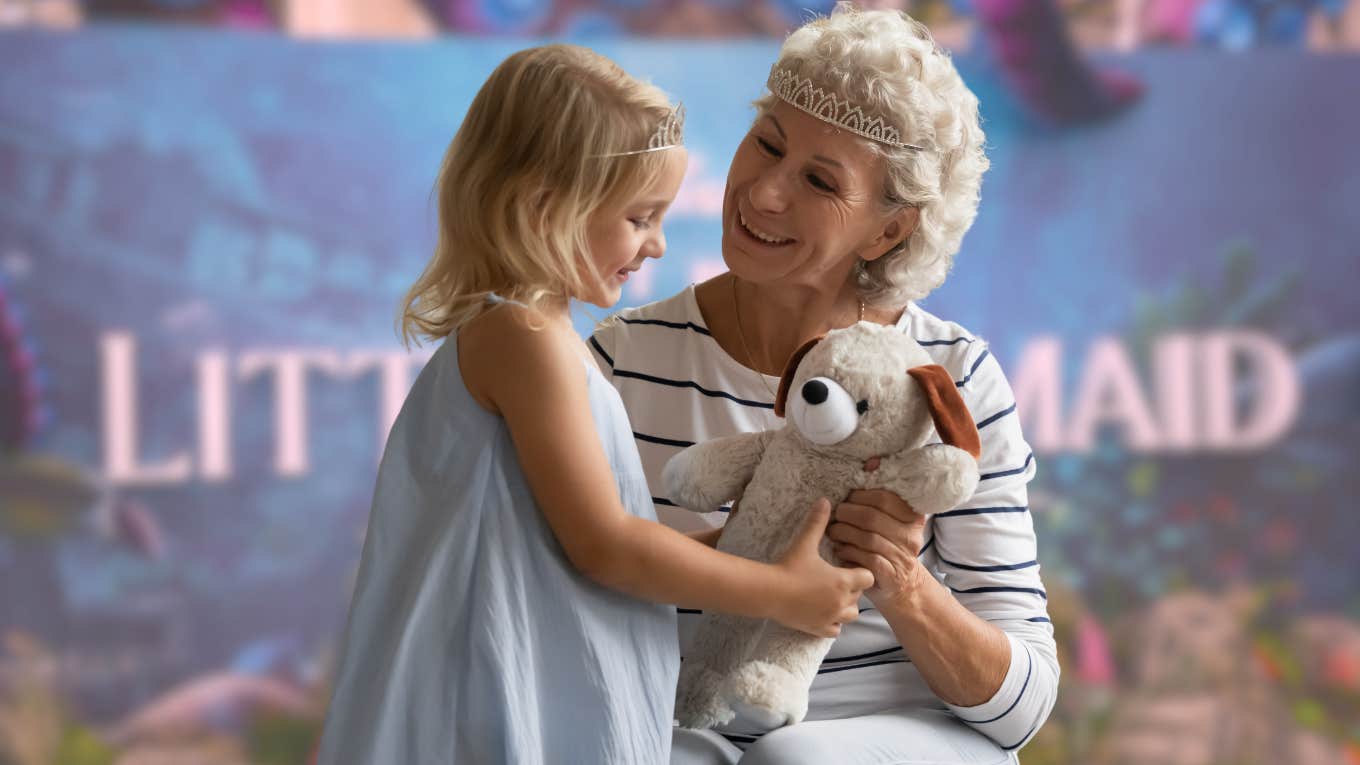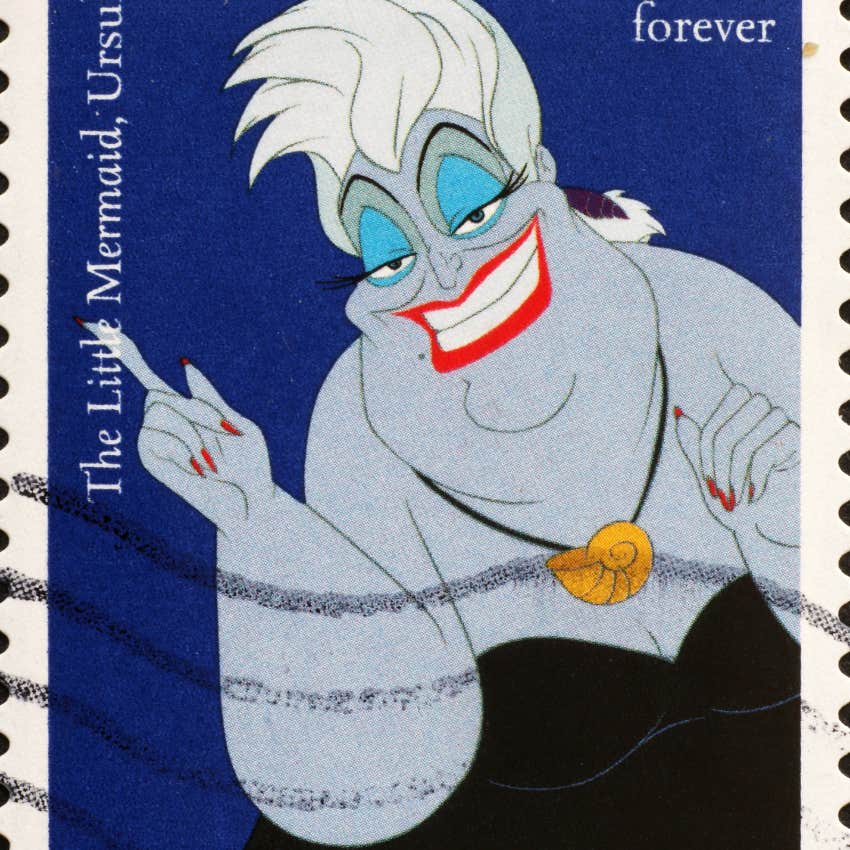Grandma Explains That Ursula Was The Real Victim In 'The Little Mermaid' — ‘She Was A Business Woman’
Sometimes, there's underlying themes to children's movies we only realize as adults.
 Loredana Sangiuliano, Fizkes / Shutterstock.com
Loredana Sangiuliano, Fizkes / Shutterstock.com “I don’t understand why people don’t like Ursula. I agree that she is evil, but still, Ariel signed the contract.”
This was the first sentence a TikTok creator’s grandmother said in a now-viral conversation posted on their page. The creator, otherwise known as @otakoyakisoba on TikTok, first shared the video after rewatching “The Little Mermaid” with her family — including her passionately opinionated “Mama.”
This grandma passionately argued that Ursula was ‘the victim’ in 'The Little Mermaid' — ‘She was a businesswoman.’
“Ursula sang the ‘Poor Unfortunate Souls’ song, but still she signed the contract,” the grandmother continued, arguing that Ursula was actually the victim, not the villain, in "The Little Mermaid."
“I don’t care…Ursula is a businesswoman! That’s called interest”
Despite Ursula’s misguided promises in the movie, leading to Ariel losing her voice, this grandmother stands passionately behind her opinion of the movie.
“I saw them stab Ursula with the ship. It hurts me. I feel as if I am Ursula. We are only doing business… they cheated us.”
She argued against the 'hatred’ of Ursula, saying ‘Ariel signed the contract.’
Arguing that Ariel should’ve been smarter about Ursula’s contract, she placed the blame elsewhere for Ursula’s “evil” behavior. Not only that, she sparked discussion in the comments about Ursula’s “vague” past in the movies —she clearly had history with King Triton, and that may have had something to do with her bitter “business” deal.
“The Little Mermaid is supposed to be a cautionary tale,” one person commented, supporting this grandmother’s hot take. “The moral being: Gambling your whole life and changing your body for a man is very painful and risky.”
It’s about much more than Ariel’s interactions and womanhood, but also about Ursula’s. How can we ignore her bitterness, anger, and distaste for the culture of their world?
While most comments jokingly agreed, many suggested her ‘hot take’ was a humbling reminder of humanity in fantastical children’s movies.
“It’s true, this mama is right!” one person wrote under the post. “We have to be responsible for every choice that we make. Not every villain is evil, but sometimes a reflection of the things we did.”
Of course, when we’re children watching movies like "The Little Mermaid," we’re not considering the character development or societal standards intertwined into the plot. We’re excited to see Ariel finding true love or breaking out of her shell.
 spatuletail / Shutterstock.com
spatuletail / Shutterstock.com
As an adult, however, “hot takes” like this become more prevalent and thoughtful. What from Ursula’s past was fueling her? Did she know all along the silence many women face in the shadow of powerful men? Was she truly just a “smart businesswoman,” like this grandma suggested?
Ursula was loud, took up lots of space, and didn’t conform to the societal standards women seem to face, even in fictional storylines and settings. She might’ve been created as “the villain” in this story—surely she wasn’t a great character—yet she received no grace from viewers.
Maybe this grandma is onto something. Maybe Ursula was a powerful woman trying to teach Ariel a much more important lesson: Don't give up any part of yourself for a man.
At the end of the day, you can interpret movies however you choose to. Especially when it comes to trying to describe their meanings to your children — that's part of parenting. However, these "hot takes" and second guesses into the traditional meanings can be an opening to more nuanced conversations and perspectives.
It can be both a fun and educational way to question stereotypically traditional stories and perspectives.
Zayda Slabbekoorn is a News & Entertainment Writer at YourTango who focuses on health & wellness, social policy, and human interest stories.

